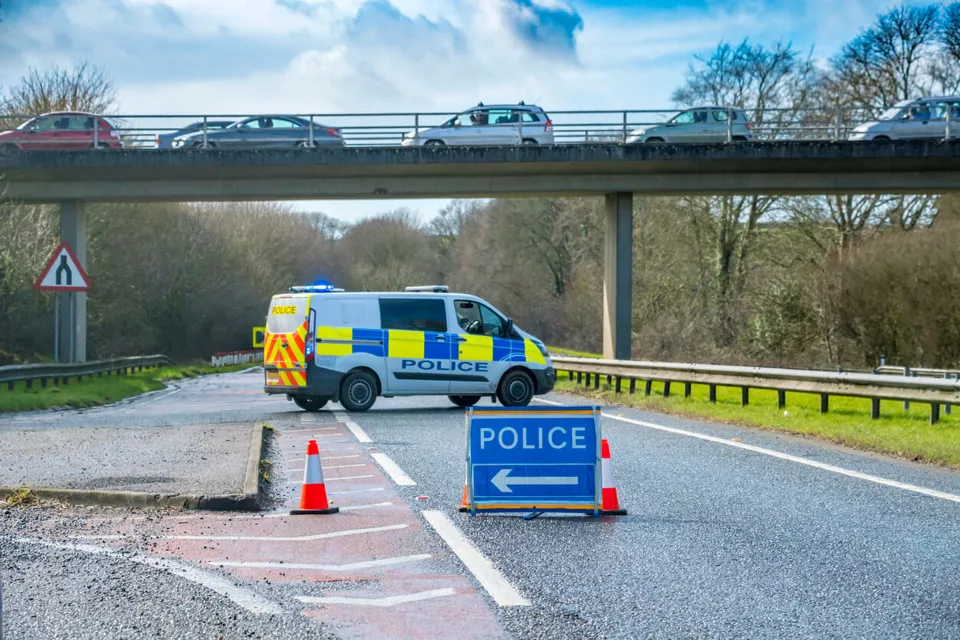National Highways is exploring alternatives to the word ‘accident’ following pressure from families affected by traffic collisions, road safety groups and politicians, Fleet News has learned.
The Government-owned company has come under pressure to stop using the word on its public information signage, such as its overhead gantries.
National Highways has previously explained that the word was used in legislation and it would need to seek permission from the Department for Transport (DfT) to change collision messaging.
However, it has now confirmed it is testing alternative language among customers, to seek road users’ approval before approaching the DfT.
A National Highways spokesperson said it is “currently in a testing phase for alternative terminology” to the word accident.
“We began looking into it as a result of feedback from families impacted by road traffic collisions, and in consultation with colleagues in DfT”, the spokesperson added.
It is now testing the words “Incident, Collision and Crash” as well as “Accident” with customers.
The move has been welcomed by road safety bodies, who have long called for an end to use of the word in the industry and beyond.
Edmund King, AA president, said: “Most ‘accidents’ are not accidents because they could have been avoided by better driving or paying better attention to the conditions. These are incidents, collisions, or crashes rather than accidents.
“We are pleased to see National Highways are considering alternatives because calling every crash an ‘accident’ almost implies that the crash was inevitable. In most cases, it is not.”
Nick Simmons, CEO of RoadPeace, the national charity for road crash victims, which has led a long-term ‘Crash Not Accident’ campaign on behalf of its members, said: “We are delighted to learn that National Highways has accepted the need to replace the word 'accident' with a more neutral and appropriate alternative on its variable messaging signs.
“The word ‘accident’ is inaccurate in many cases, as it suggests that something was unavoidable and beyond control. Yet, the majority of road crashes are preventable.”
Simmons added the word ‘accident’ wrongly normalises road crashes as inevitable. “Changing language is vital to changing attitudes, and we thank National Highways for listening to our calls for reform and for playing its part in helping to change public perception around road harm,” he said.
Jamie Hassall, executive director of the Parliamentary Advisory Council for Transport Safety (PACTS), said organisations such as National Highways and DfT “need to be leading by example”.
“The use of language is a critical part of this,” he said, adding “the use of ‘accident’ is outdated, inaccurate, and harmful to moving road safety forwards.
“Most collisions are predictable and preventable and using the wrong terminology can indicate no action could have been taken to prevent it from happening.
“Stopping the use of ‘accident’ on gantries is a good first step and it was refreshing hearing Mark Cartwright from National Highways say, ‘Vehicles don’t crash, people do’ at their recent conference.”
Those hoping for reform may be frustrated that change is still reliant on customers supporting any alternate messaging.
National Highways says “if customer testing supports a new message, we will seek DfT approval, after which we would look to implement into our traffic management system to be used across the network”.
This approach has been criticised as road users are unlikely to welcome a regular reminder they could be responsible for a collision.
When asked before about the topic, Detective Chief Superintendent Andy Cox, National Police Chiefs' Council lead for fatal collisions, said: “Words matter and are integral to changing culture and reducing road danger. Therefore, we must stop using the word ‘accident’ when describing crashes.
“This word implies it was just one of those things, it couldn’t be helped, or it was just bad luck. Instead, so often crashes are about a driver’s choice to be selfish, dangerous or reckless and as such we should describe it as a collision or crash. This allows for the public perception to appropriately consider driver choice and error.”
The new language, if adopted, could be in place as early as summer 2025, according to one source.



















Login to comment
Comments
No comments have been made yet.